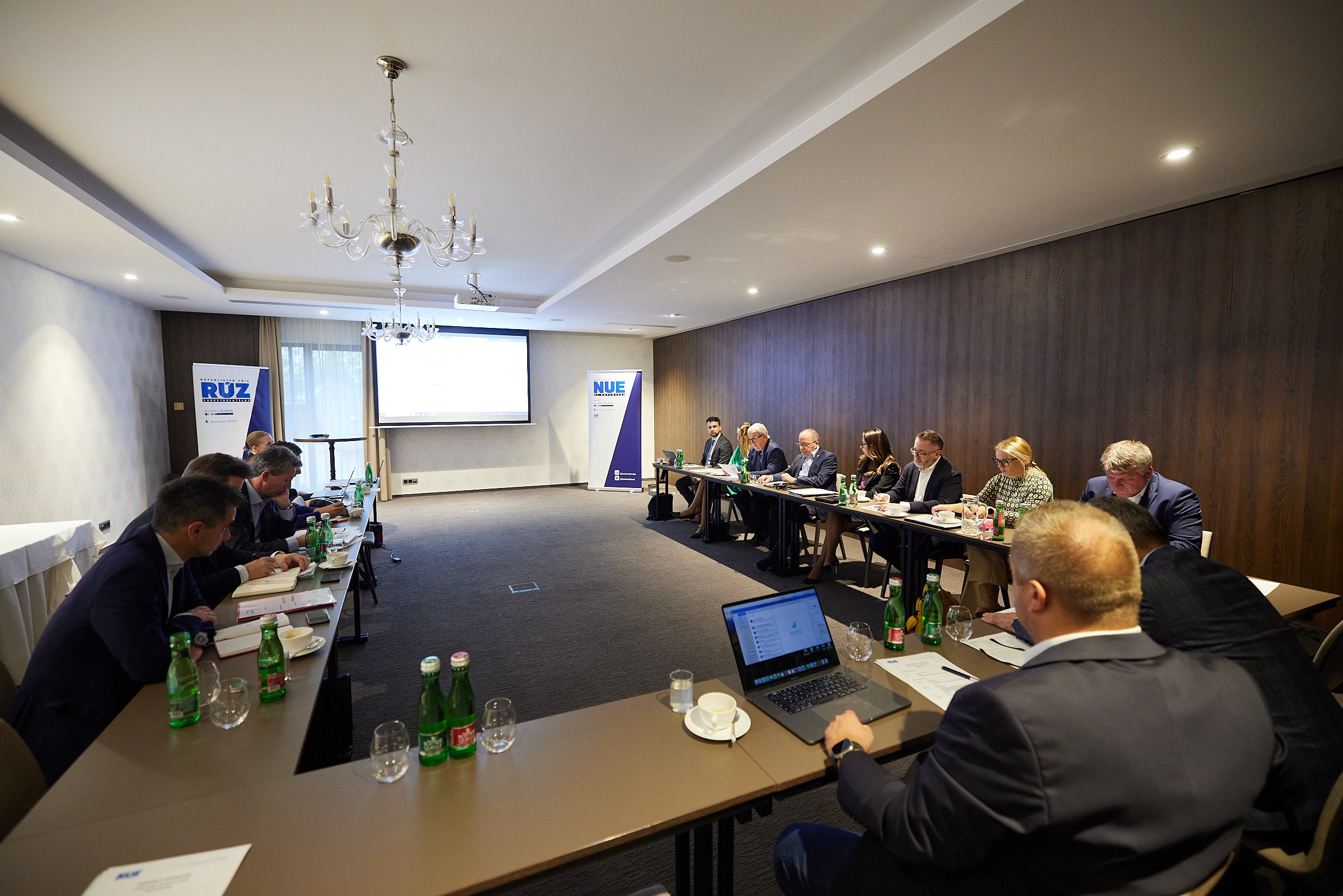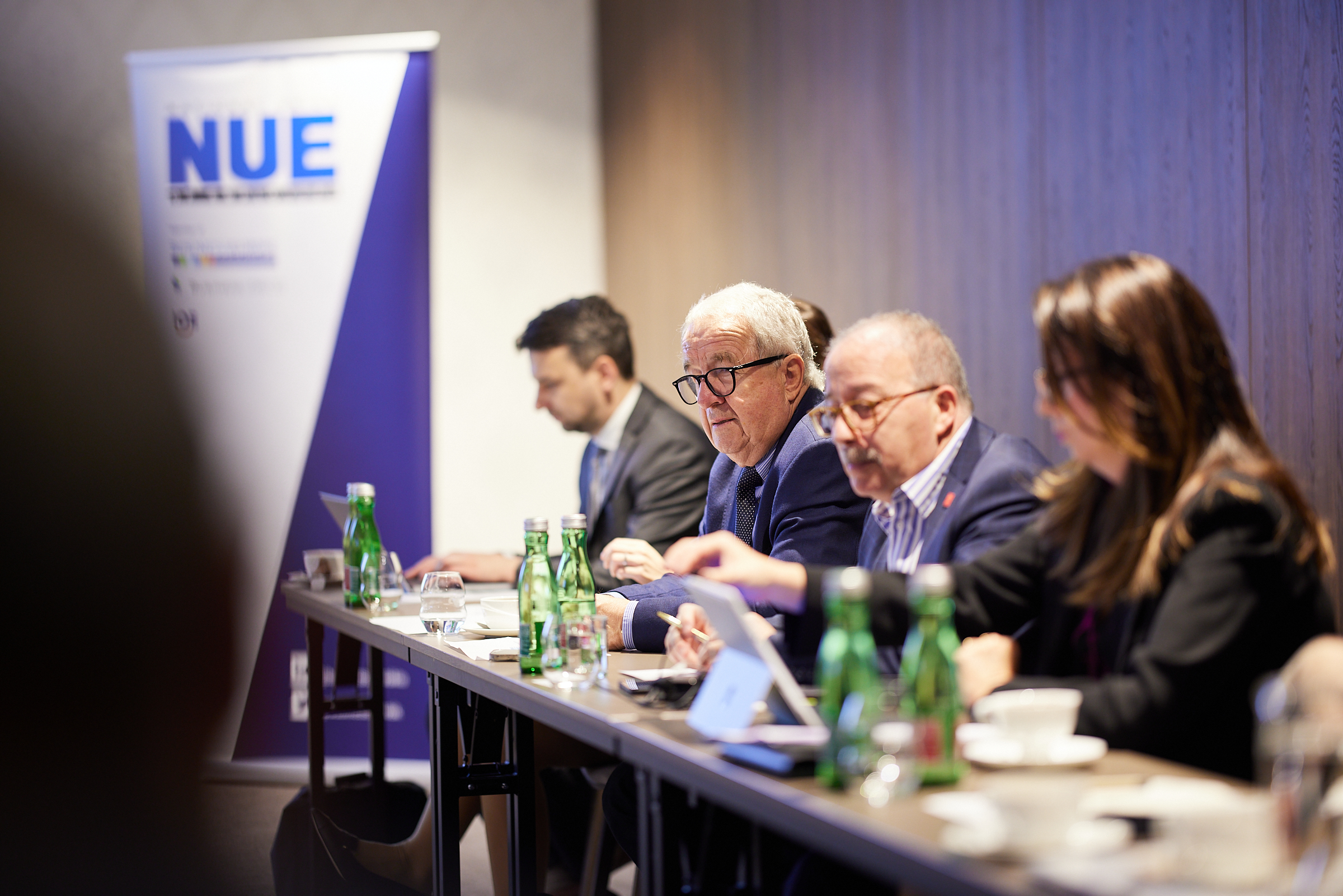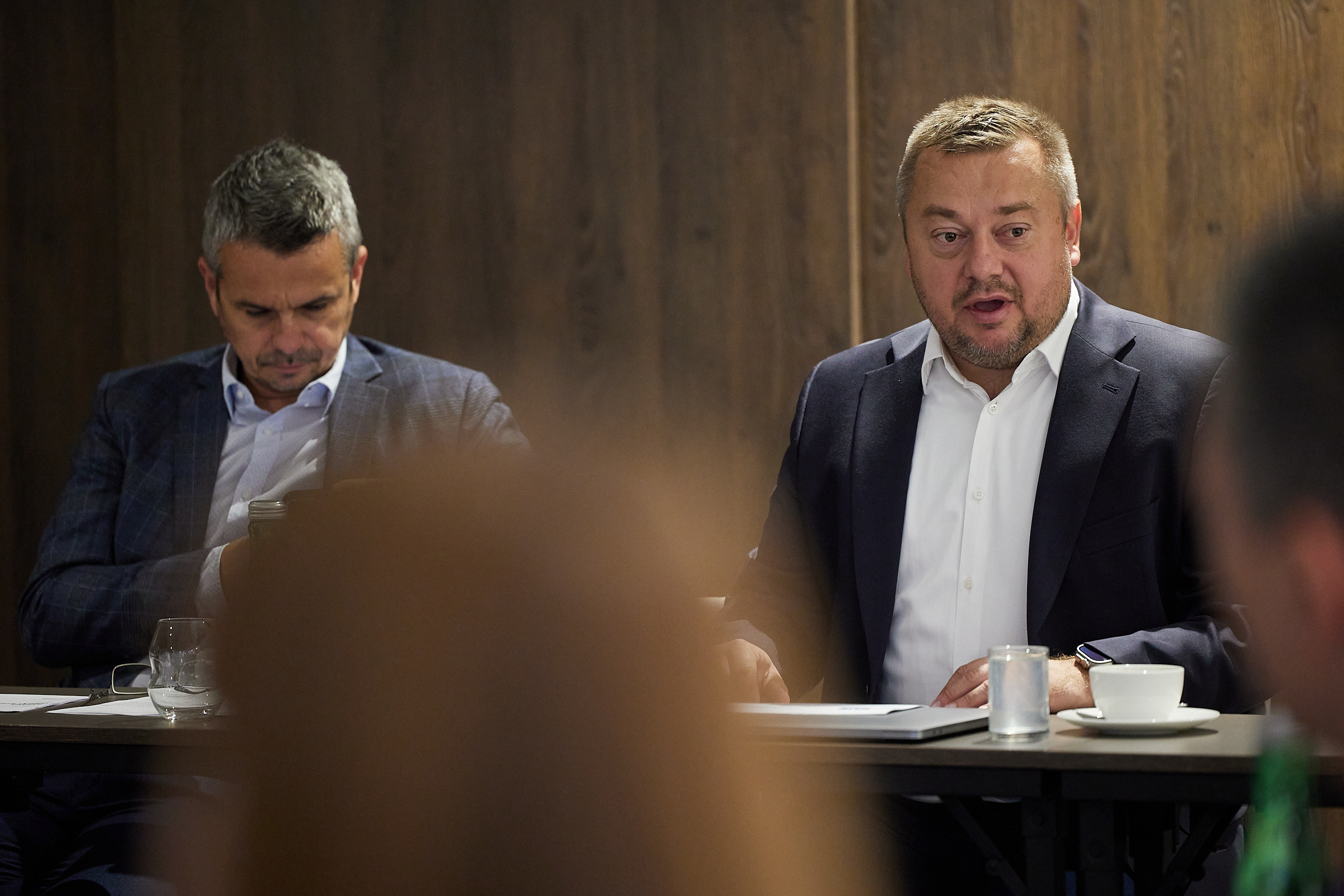On the 19th-20th October 2023, representatives of employers' unions from Slovakia, the Czech Republic, Austria, Hungary, Slovenia and Croatia met in Tatranská Lomnica to discuss a number of key topics related to the business sector and industry from the perspective of the Central European region. Attention was mainly focused on the upcoming elections to the European Parliament and the direction of European politics in the new electoral period in the context of the challenges and crises that have affected the European Union (EU) and the world in the past period.

Source: NUE/Peter Brichta
The meeting of representatives of industrial and employer organizations took place within the framework of the CEEI initiative (Central and Eastern European Industry and Employers' Federations Initiative), which was established in 2005. Its goal is to strengthen the mutual cooperation of the employer sector in the Central and Eastern European region. Meetings are held twice a year, always in one of the partner countries. The employers associated in the National Union of Employers (NUE) hosted their partners for the last time in 2019. This year's meeting was attended by the Union of Industry and Transport of the Czech Republic, the Federation of Austrian Industry - IV, Hungarian Business - MGYOSZ, the Association of Employers of Slovenia - ZDS and the Croatian Association of Employers - CEA. "It is an honor to host the meeting of this exceptional regional grouping. All participating unions are members of the largest employers' organization in the Union - BusinessEurope - but I believe, and history has confirmed it many times, that the business environment and its challenges in the countries of Central and Eastern Europe sometimes have their own specifics, which need to be discussed even in a narrower than European table. Of course, we have many pan-European topics and challenges, but we are also fighting for the competitiveness of our region," states the president of NUE, Miroslav Kiraľvarga.

Source: NUE/Peter Brichta
The key topic of the employers' autumn meeting was the upcoming European elections, which will take place in less than eight months. Representatives of the business environment together discussed the direction of European policy and its spillovers to the national level in the upcoming electoral period (2024-2029) in the context of the challenges that have hit the Union and the world in recent years, be it post-covid economic fluctuations, the energy crisis or geopolitical tensions . The topic of the discussion was also the possibilities of supporting the elections to the European Parliament, especially increasing awareness and electoral participation in individual countries. "Today, the European Union is in a difficult and "fragile" situation. For its further direction, it will be necessary to have pan-European solutions and their full support from individual member states. The new European Commission must immediately take measures to make the European area more attractive for investments, fight for our competitiveness, simplify legislation and rules that are often too rigorous in order to support economic growth, self-sufficiency, and thus the prosperity of the entire Union. However, each member country or region must follow these measures - taking into account their national or regional weaknesses as well as strengths," explains NUE General Secretary Martin Hošták.

Source: NUE/Peter Brichta
The outcome of CEEI meetings is usually also a joint position, the so-called Manifesto, partners on a chosen current topic, which is communicated not only at the national level of individual participating countries, but also at the European level in Brussels, as all six unions are members of BusinessEurope – an international organization that unites 40 national business unions from 34 European countries. "It is necessary to start with a targeted and deliberate reduction of the administrative and legislative burden at the European and national levels, to prioritize the development of a qualified workforce whose skills will be in line with the requirements of the changing labor market. At the same time, however, we must not break up the single European market and get ahead of ourselves in national approaches, where a stronger member state has different options than a weaker one. Europe needs a "business case" for new investments, innovations, research and development as a whole - otherwise we have no chance to face our partners and competitors such as the USA or China," adds the president of NUE, Miroslav Kiraľvarga.